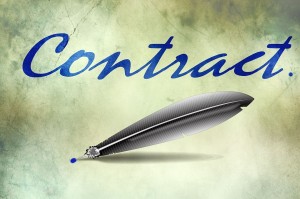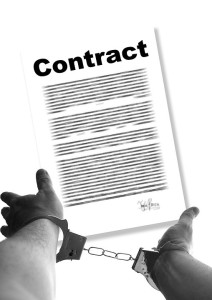Savannah Cordova is a writer with Reedsy, a marketplace that connects self-publishing authors with the world’s best editors, designers, and marketers. In her spare time, Savannah enjoys reading contemporary fiction and writing short stories. She’s very passionate about indie publishing and hopes to help as many authors as possible achieve their dreams.
It’s no secret that publishing a book is a mammoth task. Once all the long nights of writing, editing, and formatting are over, a book description may seem like that final formality you just want to get over and done with — but losing steam at this vital moment could mean losing sales.
After all, avid readers are presented with hundreds of books they might like to read every day. Somewhere among all these books clamoring to be heard, yours needs to rise above the crowd. In comes your book description: an invaluable tool in your marketing arsenal.
In this short space of words, you need to take your reader from knowing nothing at all about your book to wanting to fork over money to buy it. Whether you’re writing fiction or nonfiction, these tips will cover all the bases to help you captivate readers and reviewers alike.
1. Lead with a hook
First impressions are everything; the way you open your book description dictates whether someone decides to keep reading. The importance of this is magnified on retailer sites like Amazon, where only a few lines of the description are seen without clicking a read more button.
Your hook should be a bold, punchy headline that immediately grabs the reader’s attention. If you’re writing fiction, this might be a question that plunges your reader straight into the world of the book. For nonfiction, you might want to start with a surprising statement that forms the basis of your work. If you’ve got a particularly strong first line, you might even use that — though you don’t want to use more than one line in your description, otherwise it just becomes a preview.
On the critical side, a glowing quote from an editorial review may be the vote of confidence that wins readers over (though of course, you won’t be able to add this until you actually receivea review — all the more reason to make your description compelling). Whatever your hook is, it needs to stand out! And remember, if you ever think of a better way to phrase your hook, or get a stellar review you’d like to feature, you can always edit your book description down the line.

2. Make the conflict clear
No good piece of fiction should be smooth sailing for every character — where’s the fun in that? The intrigue happens when things start to go wrong. To that end, make the nature of your conflict known in your book description with an allusion to a character clash, an internal battle, a societal struggle, or whatever conflict lies at the heart of your story. This will assure readers they’re going to get that bit of action or drama, enticing them to read more to find out what it is.
What about nonfiction? While narrative-driven books like biographies and memoirs lend themselves well to conflict taking center stage, this is not true for all works of nonfiction. In these cases, however, there will still be some core theme or issue that your book addresses (how to improve your life through organization, how to tap into your resilient side to build a business, etc.), which should also be made clear in the description.
In both fiction and nonfiction, once you’ve established this central conflict or theme, you can spell out some of the questions that arise from it — both basic, plot-essential questions like “Will the main characters get through this?” and deeper, more abstract questions about your themes. Then tantalize readers by dangling the resolution or answers your book provides, without giving away what they actually are.
3. Create a point of reference
People like what they know, which means that mentioning something recognizable to your readers is a simple-yet-effective way to appeal to them. For starters, consider your genre and any standout features that a fan of that genre might expect to see — for instance, if you’ve written a thriller, you could hint at a character with a dark past, or a situation where all is not as it seems.
For nonfiction, though, genre tropes won’t be the way forward. Instead, use familiar points of reference to establish your authority and expertise. If you’ve honed your knowledge under the tutelage of an expert, give that expert’s name — better yet, if you can get a quote of praise from a well-known figure in your field, make sure to get that in your book description (and maybe even on your book cover!).
Of course, no one wants to read a book they feel they’ve already read, so also give enough info for readers to understand how your book differs from what they’ve seen before. What is the twist that makes your book special? Why should they invest in these specific characters? As for nonfiction, what are you saying on the topic that other people haven’t yet heard?
Try to strike a balance between your unique elements and other, familiar books in your genre. This will show readers and reviewers that your book is “for them” like those other books were, yet tempt them to read it for the new twist or angle you’re offering.
4. Keep things short and sweet
There are probably a thousand amazing things you could say about your book to convince readers to buy it — but in a 200-word description, you need to be selective. Not to mention there’s an increasing trend of people being put off watching movies when they feel they’ve seen all the action in the trailer, and you certainly don’t want your book to suffer this fate.
So don’t try to cram everything at once, and obviously don’t give away the best bits. Not only will this likely push your description way beyond the advised word count (again, 200 words max), but a straight-up synopsis will take away any reason to actually readyour book.
Even outside the spoiler concern, concision and readability are key in a book description. It’s true that you’re trying to impress, but purple prose here doesn’t bode well for what’s inside. To that end, stick to short, clear sentences and break your description up into two or three paragraphs to keep the reader’s attention. Unless you have some truly impressive pull quotes to stick at the end, it really shouldn’t be longer than that.
Yes, writing the perfect book description will take some care and attention — but with these tips, you should be able to attract readers and land reviews that stick with ease. Good luck!
















